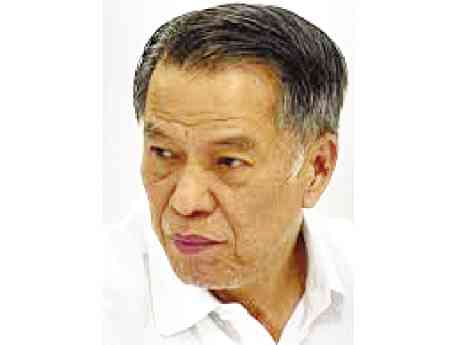LT Group cautious amid looming economic recession

LUCIO Tan
Tycoon Lucio Tan-led conglomerate LT Group Inc. (LTG) is bracing for a tougher period for its tobacco, liquor, property and banking businesses for the remainder of 2020, during which the domestic economy is expected to fall into a recession for the first time in over two decades.
“With purchasing power affected, demand for consumer goods is expected to be weak, and will affect the sales volumes of the products of PMFTC (Philip Morris Fortune Tobacco), Tanduay and Asia Brewery,” LTG president Michael Tan said during the company’s stockholders meeting on Tuesday.
The group’s property arm, Eton Properties, may also be affected as some tenants may end their lease contracts, Tan said.
On the banking business, Tan said Philippine National Bank (PNB) may “have to grapple with non-performing loans (NPLs) and slower demand for loans.”
While the government estimates that the economy will contract by 2 percent in 2020, some economists expect a higher deceleration of 10-20 percent, Tan noted.
Tan likewise noted that thousands of overseas Filipino workers (OFWs) have lost their jobs and thus have returned home as the COVID-19 pandemic likewise hit their host countries.
As such, Tan said the group said that its outlook for 2020 was “guarded.”
In 2019, LTG’s attributable net income reached a record-high P23.12 billion, 43 percent higher than the level in the previous year.
In the first quarter of 2020, LTG grew net profit in the first quarter by 41 percent year-on-year to P6.21 billion, driven mostly by price increases in the tobacco business. On the other hand, earnings from the banking, beer and hard liquor businesses faltered, while the real estate business gained.
Tan said he was hoping that LTG’s strong 2019 results would give the conglomerate a strong foundation to weather the current crisis.
He noted that the effects of coronavirus (COVID-19) pandemic was already felt by LTG’s banking, tobacco and the alcoholic and non-alcoholic beverage businesses starting mid-March of this year, when the government declared an enhanced community quarantine (ECQ).
“Some plants were not allowed to operate when ECQ was declared as the products were considered non-essential. Sari-sari stores that play a big role in reaching consumers, were closed in some areas. There were also liquor bans declared by some local government units (LGUs),” he said.
“Even as the economy restarts under different permutations of the quarantine thereafter, LTG believes it will take a while before the Philippine economy goes back to the normal, or to what it used to be. The key to faster recovery would be the availability of a vaccine for COVID-19 which it hopes will be sooner than later,” he added.